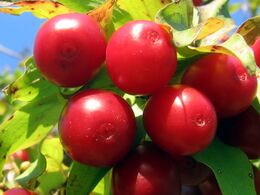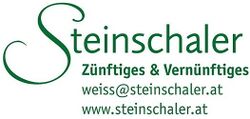Abstract 2. Studie
|
Abstact der zweiten Stoffwechsel-Studie |
In Kooperation mit der Meduni Wien wurden zwei Stoffwechselstudien im Dirndltal mit Beteiligung der Bevölkerung und der ansässigen Ärzte durchgeführt.
Hier das Abstract dieser zweiten Stoffwechsel-Studie.
Auswirkungen Carnitin
A combination of (n-3) Polyunsaturated Fatty Acids, Polyphenols and L-Carnitine reduces the Plasma Lipid Levels and increases the expression of peroxisome proliferator-activated receptor alpha and enzymes involved in Fatty Acid oxidation in human peripheral blood mononuclear cells1-2
Autoren
Lohninger A3, Radler U3, Lienbacher G4, Krepp R4, Zeller E4, Brachinger M4,
Eller- Berndl D4, Fischer A4, Lechner S3, Anzur C6, Laschan C5 and Anderwald C7
Abstract
Hyperlipidemia and obesity are associated with the metabolic syndrome and an increased risk in the development of diabetes mellitus and cardiovascular disease. Lipid-lowering drugs are widely used to reduce this risk. Alternatively nutritionally supplements e.g. L-carnitine and (n-3)-polyunsaturated fatty acids (PUFAs) exert lipid-lowering effects, not at least, by increasing mitochondrial fatty acid oxidation. The aim of the present, prospective, placebo-controlled, double-blind study in hyperlipidemic subjects was to assess the effect of low-fat yoghurt consumption enriched with a combination of PUFAs, polyphenols and L-carnitine (PPC) on plasma lipids and enzyme expression involved in regulation of FA-oxidation in peripheral blood mononuclear cells (PBMCs).
Twenty-two moderately hyperlipidemic obese humans consuming PPC twice daily for 12 weeks, were compared with twenty matching participants ingesting low-fat yoghurt enriched with vitamins C and E.
PPC consumption led to significantly reduced (P<0.05) plasma free fatty acid (FFA -29%) and triglyceride (TG -24%) concentrations. In subjects older than 55 years, FFA levels decreased by 37% (P<0.01), whereas the TG lowering effect depends rather on TG concentration at baseline. PPC administration resulted in a moderately decreased portion of saturated FA and a moderately increased percentage of monounsaturated FA on plasma FFA.
Moreover PPC application increased the PPARα relative mRNA abundances 2.6 fold (P<0.05) in PBMCs, whereas the expression of SREBP1c was down-regulated by a factor 0.8. In addition the relative mRNA abundances of PPARα target genes CPT1A, CPT1B, CRAT and OCTN2 were enhanced by a factor of (2.1, 1.8, 2.1, and 2.7, respectively each P<0.05). In controls, plasma lipid levels and PBMC gene-expression did not change after 12 weeks.
Conclusion
In conclusion the supplementation of PPC had marked lipid lowering effects and the results provide convincing evidence, that PBMC gene expression profiles reflect nutrition-related metabolic changes.

